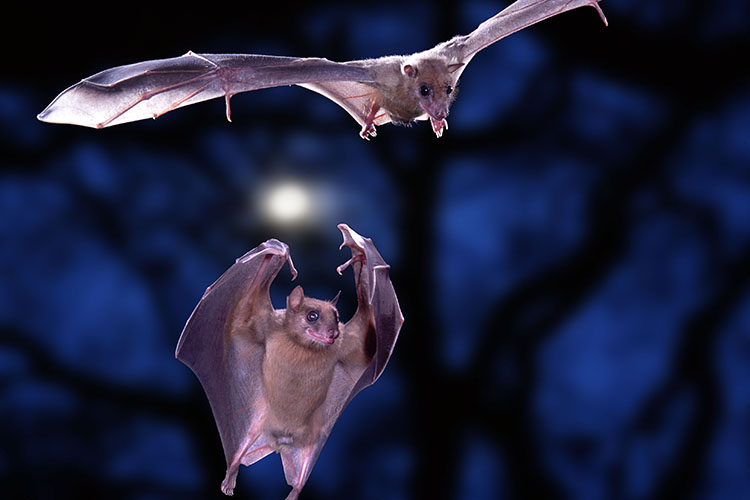Neuroscience professor awarded prestigious Packard fellowship
Michael Yartsev will study bats to investigate how human brains developed language.

October 16, 2017
UC Berkeley neuroscience and engineering professor Michael Yartsev has been awarded a 2017 Packard Fellowship for Science and Engineering. The fellowships, given by the David and Lucile Packard Foundation, go to 18 of the nation’s most innovative, early-career scientists and engineers. Yartsev will receive $875,000 over five years to pursue new research into how our brains developed the ability to acquire language, which could help scientists better understand language learning impairments.

Michael Yartsev, assistant professor in the Department of Bioengineering and the Helen Wills Neuroscience Institute.
The Packard fellowships are among the nation’s largest nongovernmental fellowships, designed to allow maximum flexibility in how the funding is used. Packard fellows have gone on to win significant awards and honors, including the Nobel Prize, MacArthur fellowships and elections to the national academies. Their research has led the development of CRISPR-Cas9 gene-editing, the sequencing of the Ebola virus genome, the creation of Bose-Einstein condensates and pioneering work on glaciology and abrupt climate change, among other outcomes.
“These scientists and engineers are tackling unanswered questions and pushing the boundaries of their fields,” said Frances Arnold, chair of the advisory panel for the fellowships and a former Packard fellow, of this year’s class. “Their innovations could lead to breakthroughs in how we live our lives and our understanding of nature.”
Yartsev, a professor in the Department of Bioengineering and the Helen Wills Neuroscience institute, runs the NeuroBat Lab, where his research team has designed custom experimental spaces and developed advanced technologies to investigate fundamental questions about the neural basis of complex spatial and acoustic behaviors.
The Packard fellowship will allow Yartsev to research the attributes of the mammalian brain that support the human ability to acquire language. To do this, Yartsev and his associates study bats, one of the only known vocal-learning mammals on the planet. Their novel approach will allow them to address one of the most mysterious and long-standing questions in neuroscience: What is it about the mammalian brain that supports our unique ability for language learning?
“The generous support from the Packard fellowship will allow us to take on this previously unexplored and very exciting scientific challenge,” Yartsev said. “We hope that out studies will not only facilitate the investigation of normal language development but will also permit detailed examination of language learning impairments that affect both children and adults worldwide.”
The fellowships program was inspired by David Packard’s commitment to strengthen university-based science and engineering programs in the United States, recognizing that the success of the Hewlett-Packard Company, which he cofounded, was derived in large measure from research and development in university laboratories. This year, the foundation increased its grant budget in response to new challenges to promote stronger national support for science and greater reliance on evidence-based decision-making.